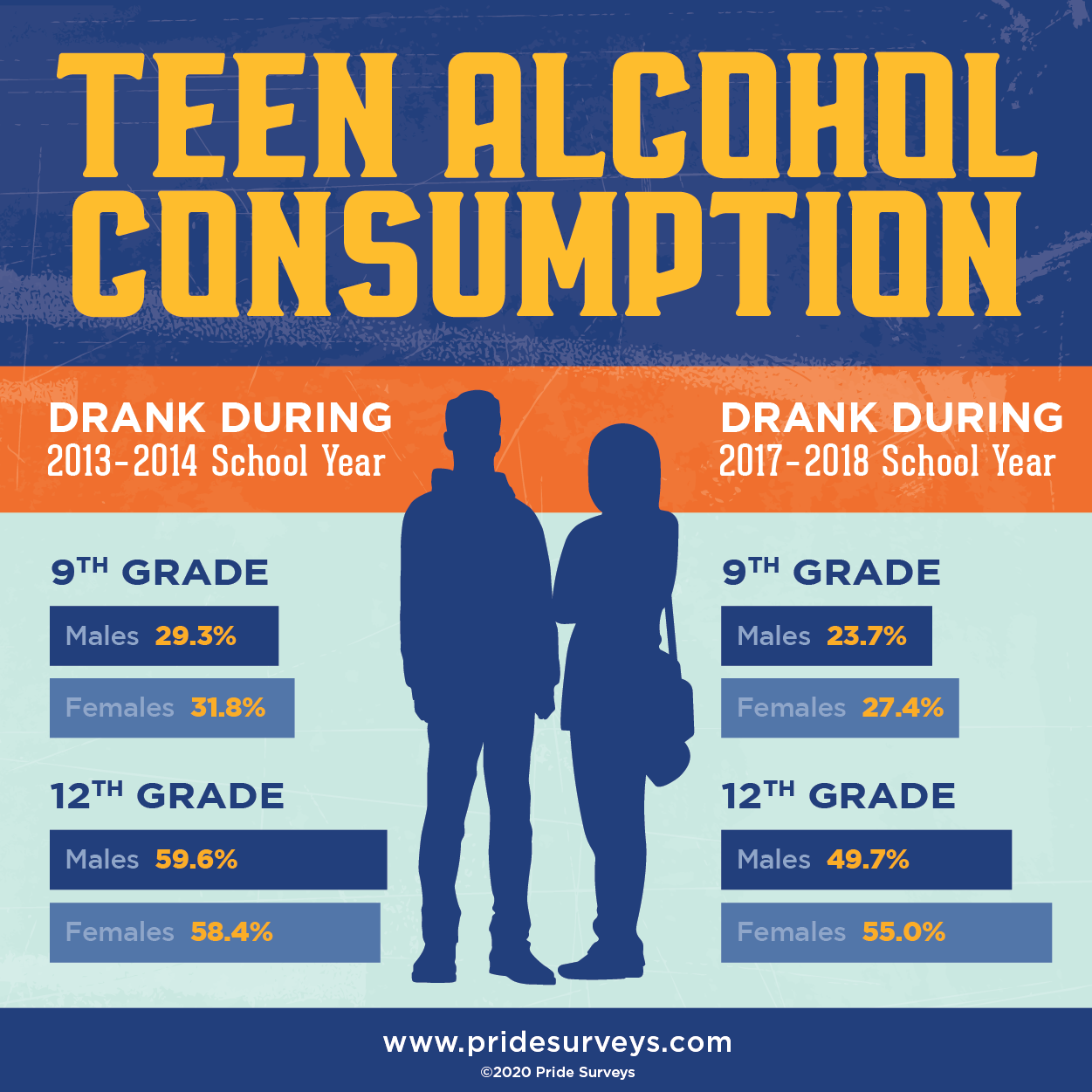Alcohol Consumption Among Minors: A Closer Examination
The issue of alcohol consumption among minors is a multifaceted subject that elicits considerable debate within sociocultural, psychological, and health-related contexts. A predominant element in the discourse is the mood-boosting experience that alcohol can provoke. This analysis delves into the reasons minors engage with alcohol, the impacts of these substances on their mental states, and the broader implications for society.
The Inception of Alcohol Use in Youth Culture
The allure of alcohol consumption frequently begins in adolescence, a developmental period characterized by profound change and exploration. Social environments, peer pressure, and cultural narratives surrounding alcohol contribute to its appeal among young individuals. Peer influence, particularly during formative years, can lead minors to experiment with alcohol as a rite of passage or an avenue for social integration.
Within this context, one must consider the psychological allure of alcohol as a catalyst for mood enhancement. Minors are often in search of mood-boosting experiences—feelings of exhilaration, confidence, and liberation—that alcohol can provide. The perception stems from the intoxicating effects that can temporarily diminish feelings of anxiety and insecurity. Young people may view alcohol consumption as a mechanism for transcending the emotional turbulence typical of adolescence.
Furthermore, advertising and media portrayal of alcohol reinforce these perceptions. Television shows, music, and social media platforms often glamorize intoxication, suggesting that sipping cocktails or beer is synonymous with fun, success, and social standing. Such portrayals are not merely innocuous; they shape the expectations and attitudes of young individuals, making alcohol consumption seem normative and even desirable.
The Psychological Ramifications of Alcohol Consumption in Youth
The initial euphoric experiences engendered by alcohol can inadvertently lead to a series of detrimental consequences. While moderate consumption may appear innocuous, excessive drinking can disrupt cognitive development and emotional regulation among minors. The adolescent brain is still undergoing critical growth, particularly in areas related to impulse control and decision-making, making the consumption of alcohol particularly hazardous.
Neuroscience research indicates that alcohol alters neurotransmitter activity, specifically in the pathways associated with pleasure and reward. In minors, this alteration can lead to a heightened vulnerability to mood disorders such as depression and anxiety. The temporary mood enhancement provided by alcohol is often followed by adverse emotional states, including irritability and depressive symptoms, particularly when the effects of alcohol wane. This cyclical pattern can foster a reliance on alcohol for emotional respite, leading to risks of addiction and long-term psychological distress.
Moreover, the social ramifications of alcohol use are significant. Engaging in risky behaviors while under the influence can result in repercussions ranging from academic underperformance to legal troubles. Such consequences may further contribute to a decline in mental health, creating a feedback loop of poor choices and emotional distress.
Substitute or Salve? The Question of Emotional Coping
For many minors, alcohol often serves as a substitute for healthier coping mechanisms. Rather than developing skills to manage stress or navigate emotional strife, some may resort to drinking as an immediate fix. The problem is exacerbated by societal stigmas surrounding mental health, which can deter young individuals from seeking help or discussing their emotional challenges openly. Consequently, alcohol usage becomes an all-too-tempting escape hatch in lieu of developing resilience or seeking therapeutic avenues.
Additionally, the temporality of alcohol’s mood-boosting effects can create a false narrative of emotional stability. Minors may come to believe that alcoholic beverages can replace other, more sustainable forms of happiness, leading to a toxic cycle where more considerable reliance on alcohol ensues. The loss of authentic emotional connections with peers and family members can often accompany this dependency, serving as yet another layer of harm to their psychological well-being.
The Dangers of Normalization in Society
One of the most insidious aspects of underage drinking is the normalization of such behavior in societal contexts. When communities overlook minors’ alcohol consumption or trivialize its effects, they inadvertently endorse a culture where risky behaviors are accepted as part of growing up. This culture of normalization is further perpetuated by the adult-centric perception that drinking is a benign activity that should be expected or even encouraged in young people.
The ramifications of this normalization are critical. When minors perceive that drinking is merely a social norm, they are less likely to engage in critical thinking regarding the potential consequences of their actions. Educational efforts that aim to debunk these cultural myths need to be more pronounced. Community programs, school curricula, and family discussions around the risks that alcohol presents can foster a healthier attitude toward consumption, equipping minors with the knowledge and skills necessary to make informed decisions.
Conclusion: Navigating the Future of Youth and Alcohol Consumption
Alcohol consumption among minors is a complex interplay of psychological, social, and health dynamics. The initial allure of mood enhancement can quickly devolve into perilous patterns of behavior that jeopardize both immediate well-being and long-term health. While social factors and cultural narratives contribute to the prevalence of underage drinking, it is essential to address these influences at their roots. Proactive measures, rooted in education and open dialogue, must be prioritized to safeguard the future of minors.
Moving forward, fostering environments that promote healthy coping strategies in lieu of alcohol consumption can help dismantle the ingrained social norms that surround drinking. By empowering young individuals with knowledge and emotional support, society can cultivate a generation that prioritizes well-being over temporary escapes, ultimately changing the narrative around alcohol consumption among minors for the better.
